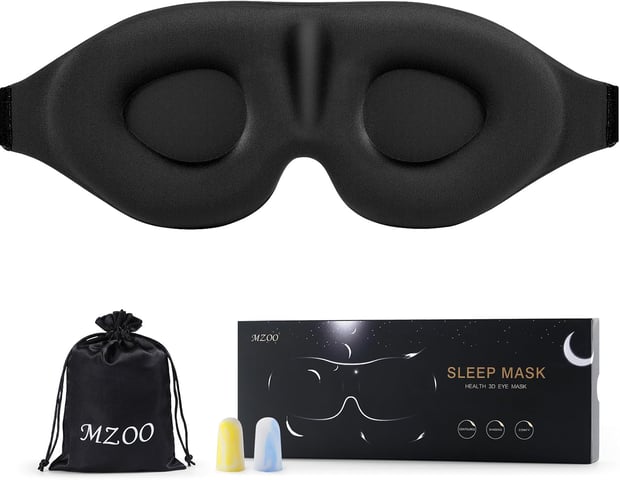Dealing with Insomnia Naturally: Effective Strategies for Better Sleep
10/29/20245 min read
Insomnia affects millions of people, leading to restless nights and exhausting days. While medication can sometimes help, natural remedies and lifestyle changes are often effective in managing and overcoming insomnia. In this guide, we’ll cover natural strategies to help you achieve a restful night’s sleep without relying on medication.
Understanding Insomnia and Its Causes
Insomnia is the inability to fall asleep or stay asleep, resulting in poor sleep quality. It can be caused by various factors, including stress, anxiety, lifestyle habits, and even diet. Insomnia is categorized into two types:
Short-term (Acute) Insomnia: Typically lasts for a few days or weeks, often triggered by a specific event or stressor.
Long-term (Chronic) Insomnia: Lasts for months or longer, often associated with ongoing stress, anxiety, or lifestyle factors.
Understanding what triggers your insomnia can be the first step toward better sleep. From there, you can make small, sustainable changes to your routine to promote a natural sleep cycle.


1. Create a Consistent Sleep Schedule
One of the most effective ways to naturally manage insomnia is by establishing a regular sleep schedule. This means going to bed and waking up at the same time every day, even on weekends.
Why It Works: A consistent schedule helps regulate your body’s internal clock, making it easier to fall asleep and wake up naturally.
How to Start: Begin by choosing a wake-up time that fits your lifestyle. Go to bed at a time that allows for at least 7 hours of sleep, and stick to this schedule daily.
2. Optimize Your Bedroom Environment
Creating a sleep-friendly environment can significantly improve your chances of falling and staying asleep.
Darken Your Room: Use blackout curtains to block out light, which can disrupt your body’s natural sleep cues.
Keep It Cool: The optimal sleep temperature for most people is between 60-67°F (15-19°C).
Minimize Noise: Consider earplugs or a white noise machine to reduce environmental noise.
A comfortable, peaceful sleep environment sets the stage for deep, uninterrupted sleep.
3. Practice Relaxation Techniques
Stress and anxiety are common contributors to insomnia. Practicing relaxation techniques before bed can help calm your mind and prepare you for sleep.
Deep Breathing: Try the 4-7-8 breathing technique, inhaling for 4 counts, holding for 7, and exhaling for 8. This method activates the body’s relaxation response, reducing anxiety.
Progressive Muscle Relaxation: Starting at your feet, tense each muscle group for a few seconds, then release. This helps relieve physical tension from the body.
Guided Meditation: Apps like Headspace or Calm offer guided meditations specifically designed to promote sleep.
Incorporating these relaxation methods into your nightly routine can help clear your mind and prepare you for rest.
4. Limit Caffeine and Alcohol Intake
What you consume throughout the day can have a profound effect on your sleep quality. Here’s how to make sure your diet isn’t sabotaging your sleep:
Cut Back on Caffeine: Avoid caffeine in the afternoon and evening. Caffeine has a half-life of up to 5 hours, which means it can stay in your system for hours and keep you awake.
Limit Alcohol: While alcohol might make you feel drowsy, it can disrupt your sleep cycles and lead to poorer sleep quality. Avoid drinking alcohol close to bedtime.
Eat Light in the Evening: Heavy or rich meals late at night can cause discomfort and indigestion, making it harder to fall asleep.
Making small dietary adjustments can help your body prepare for sleep more naturally.
5. Incorporate Physical Activity into Your Day
Regular exercise has been shown to improve sleep quality, helping you fall asleep faster and experience more restful sleep.
Exercise Timing: While exercise can improve sleep, intense physical activity late in the evening may have the opposite effect. Try to complete workouts at least a few hours before bedtime.
Morning Sunlight: Exposure to natural light, especially in the morning, helps regulate your circadian rhythm, making it easier to fall asleep at night.
Aim for at least 30 minutes of moderate exercise most days, such as walking, jogging, or cycling. The benefits for sleep can be significant.


6. Try Natural Sleep Aids and Herbal Remedies
Some people find relief from insomnia through natural sleep aids. Here are a few options that may promote relaxation and improve sleep quality:
Melatonin Supplements: Melatonin is a hormone that regulates sleep. Taking a low-dose supplement 30 minutes before bed can help improve sleep onset.
Chamomile Tea: Chamomile has mild sedative effects that can help you relax. A warm cup of chamomile tea before bed can signal to your body that it’s time to wind down.
Lavender Essential Oil: Studies show that lavender has calming properties. Add a few drops to your pillow or use a diffuser to create a relaxing atmosphere.
While these natural remedies can be effective, start with small doses and consult with a healthcare provider if you have any concerns.
7. Limit Screen Time and Blue Light Exposure
The blue light emitted by phones, computers, and TVs can interfere with melatonin production, a hormone crucial for sleep.
Set a Screen Curfew: Try to avoid screens for at least an hour before bed. If you need to use a screen, consider wearing blue-light-blocking glasses or using a screen filter.
Engage in Calming Activities: Instead of scrolling through your phone, read a book, write in a journal, or listen to calming music to help your mind wind down.
Reducing blue light exposure in the evening signals to your brain that it’s time to prepare for sleep.
8. Write Down Your Thoughts Before Bed
If you find yourself lying in bed thinking about the day’s events or tomorrow’s to-do list, a quick journaling session can help clear your mind.
Journaling: Spend 5-10 minutes before bed writing down any lingering thoughts or concerns. Getting these ideas out on paper can help you feel more mentally prepared for sleep.
Gratitude Practice: End your journaling with a few things you’re grateful for. Shifting your mindset to focus on positivity can help promote relaxation.
Journaling can serve as a mental “dump,” allowing you to release thoughts and worries before bed.
9. Seek Support if Needed
If you’ve tried multiple approaches and still struggle with insomnia, you may benefit from professional support. Cognitive Behavioral Therapy for Insomnia (CBT-I) is a proven, non-medication treatment that addresses the underlying causes of insomnia.
Therapist: Working with a therapist trained in CBT-I can help you develop strategies to manage insomnia.
Support Groups: Online or in-person groups can provide a sense of community and shared understanding.
Seeking support can be beneficial, especially for those with chronic insomnia.
Conclusion
Dealing with insomnia naturally requires a commitment to healthy sleep habits and relaxation techniques. By creating a consistent sleep schedule, optimizing your bedroom environment, and practicing relaxation strategies, you can improve your chances of falling asleep and staying asleep. Remember, small changes can make a big difference over time. If insomnia persists, consider consulting a healthcare professional to explore other natural treatments that may work for you.
Joy
Inspire your journey to happiness and fulfillment.
contact us
Growth
© 2024. All rights reserved.










